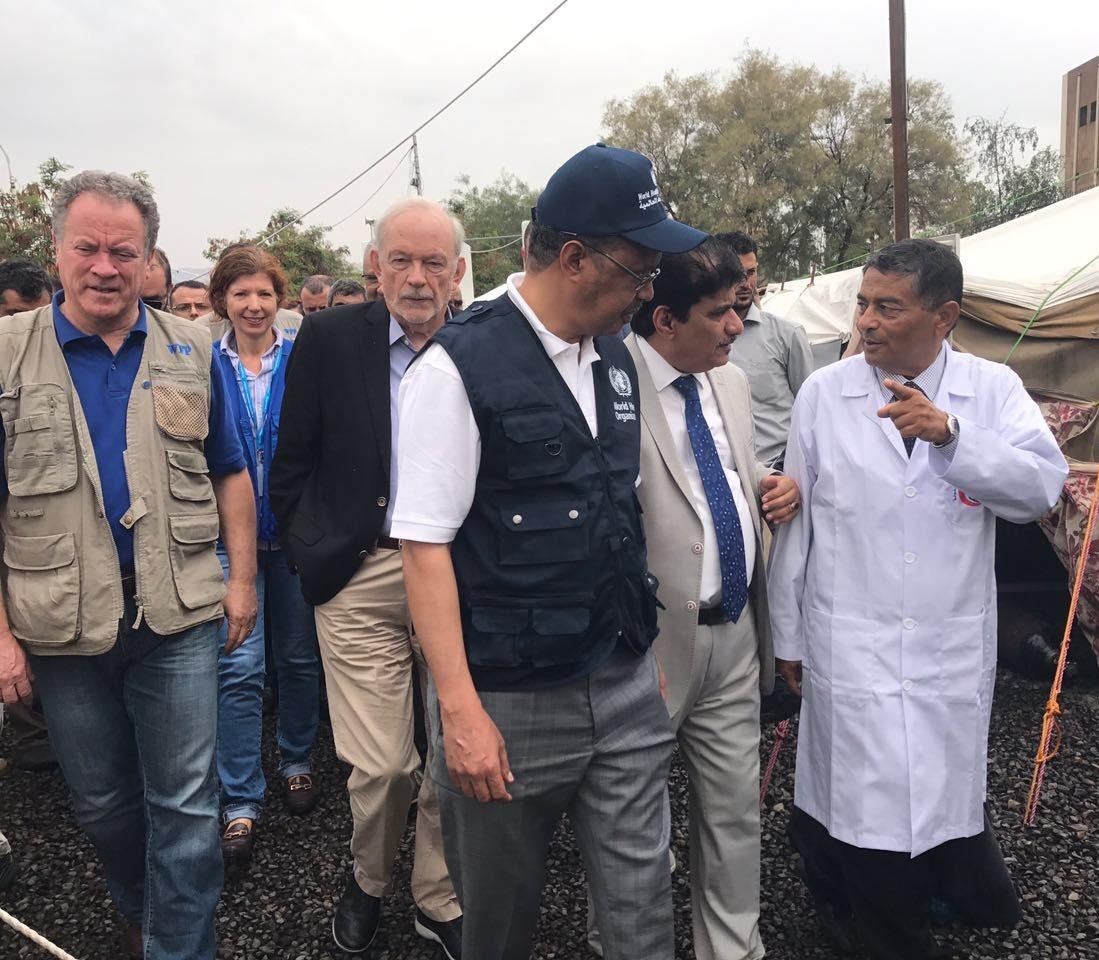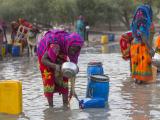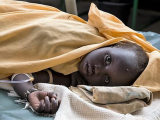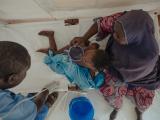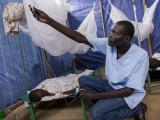Suspected cholera illnesses in Yemen's outbreak have now topped 400,000 cases, the World Health Organization (WHO) said today, as leaders from three United Nations (UN) agencies wrapped up a visit to the country, which is torn by conflict and famine.
Since late April, the total has reached 402,484 suspected cases, 1,880 of them fatal, for a case-fatality rate of 0.5%. Illnesses have been reported in all but 2 of the country's 23 governorates. However, 5 governorates account for more than half of the cases: Amanat Al Asimah, Al Hudayday, Hajjah, Amran, and Ibb.
For comparison, the most cholera cases ever reported in a single year was 340,311, during Haiti's outbreak in 2011.
Worst outbreak, worst humanitarian crisis
In a statement, WHO Director-General Tedros Adhanom Ghebreyesus, PhD, along with UNICEF Executive Director Anthony Lake and World Food Program Executive Director David Beasley, said that more than 2 years of hostilities have crippled health, water, and sanitation systems, creating ideal conditions for the disease to spread. "This is the world's worst cholera outbreak in the midst of the world's largest humanitarian crisis," they said.
The three warned that Yemen is on the brink of famine, and 60% of the population doesn't know where their next meal is coming from. They added that nearly 2 million of the country's children are acutely malnourished, making them susceptible to cholera, which leads to more malnutrition. "A vicious combination," they said.
During their stay, the UN officials visited hospitals and drove through cities, and they estimate that about 16,000 community volunteers are going house-to-house to teach families how to protect themselves from cholera.
They also spotlighted the role of more than 30,000 health workers who haven't been paid in more than 10 months, but are still reporting for duty. "We have asked the Yemeni authorities to pay these health workers urgently because, without them, we fear that people who would otherwise have survived may die," the officials said in their statement.
Local authorities and humanitarian groups have set up more than 1,000 diarrhea treatment centers and oral rehydration units, the WHO said. Supply delivery is ongoing, and the UN is working with the World Bank on a partnership to support the response needs and maintain the local health system.
Among a few glimmers of hope, the officials said nearly all people who are sick and can access health services are now surviving and that the projected number of kids who will be affected by severe malnutrition is 385,000.
Still, thousands more illnesses are reported each day, and the situation is still dire, the UN group said, noting that they met with Yemeni leaders in Aden and Sana'a, calling on them to allow humanitarian workers access to affected areas.
Call for international aid
"We now call on the international community to redouble its support for the people of Yemen. If we fail to do so, the catastrophe we have seen unfolding before our eyes will not only continue to claim lives but will scar future generations and the country for years to come," the three said in their statement.
The outbreak in Yemen is part of ongoing cholera events in several countries in the Horn of Africa and Gulf of Aden regions.
See also:
Jul 26 WHO daily update on cholera in Yemen
Jul 26 statement from UN officials on joint visit to Yemen
Jul 25 WHO feature on Yemen's cholera struggle
